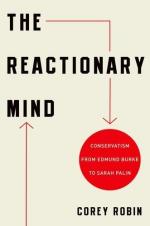|
This section contains 9,271 words (approx. 31 pages at 300 words per page) |

|
SOURCE:Francis Canavan, "Prescription and Government," in Edmund Burke: Prescription and Providence, Carolina Academic Press, 1987, pp. 113-35.
In the following essay, Canavan explains how Burke's theory of prescription led to his belief that preexisting moral obligations in a divinely-willed state both supersede and underpin the rights and liberties of individuals secured through social contracts.
In relating the political order of civil society to the created order of the world, Burke's theory of prescription of government plays an important role. He says explicitly that "the doctrine of prescription … is a part of the law of nature."1 But as the variety of scholarly interpretations of his doctrine of prescription testifies, what he meant by it and in what sense it is part of the law of nature, is by no means clear, certainly not to all who read Burke.
Paul Lucas has described Burke's theory of prescription as his "idea...
|
This section contains 9,271 words (approx. 31 pages at 300 words per page) |

|


